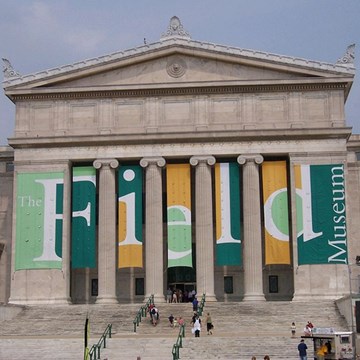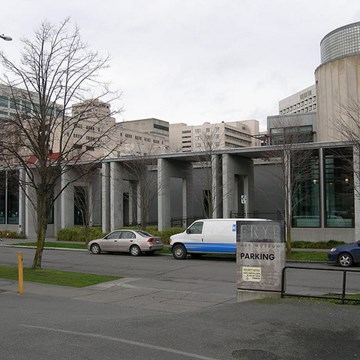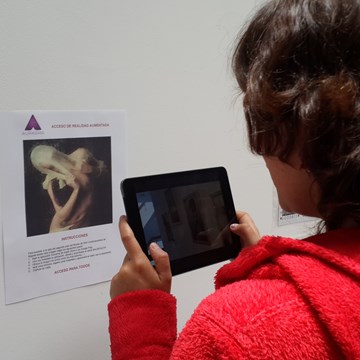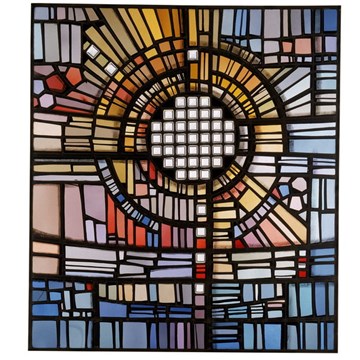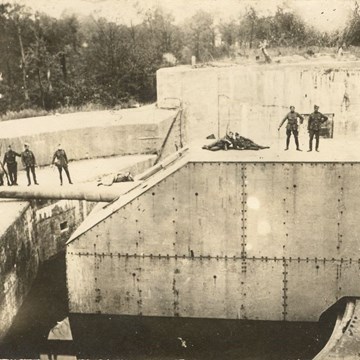Unjust Deadline - Postwar Journalists
Freedom of Speech vs. Freedom of the Press
Freedom of speech is a basic human right. Article 19 of the“Universal Declaration of Human Rights” explicitly guarantees the right to free speech in recognition of its cornerstone importance. Furthermore, freedom of the press is an institutional basic right that ensures the media’s ability to fully perform their role of government supervision. Allowing the media to operate independently and resist outside interference, especially from the government, is vital to the proper functioning of a democracy.
Since 2017, to commemorate every April 7th "Freedom of Speech Day", the National Human Rights Museum has been holding two special exhibitions: “100% Freedom of Speech: Special Exhibition on Political Magazines and Opposition Movements” and “The Days of Silence”.
In 2019, these events will focus on the theme of “Free Press”, presenting the lives of journalists who were subjected to censorship and persecution during the authoritarian era. When deprived of freedom of speech and personal freedom, journalists can’t be expected to properly supervise the government, prevent an abuse of power, and perform their institutional role.
30 years after the end of Mr. Cheng Nan-jung’s struggle to obtain the right for complete freedom of speech, we hope that these exhibitions will help a larger number of Taiwanese people to understand the importance of protecting the freedom of press, as well as to appreciate the value of free speech.
Unjust Deadline - Postwar Journalists
In postwar Taiwan, the Kuomintang government was unreservedly and harshly criticized by the media, which published in-depth reports about countless incidents of embezzlement and corruption.
In 1947, when the 228 Incident broke out, the Kuomintang government started massacring its dissidents; many media elites were arrested and tortured, while many newspapers and radio stations got banned. From then on, Taiwan’s interllectuals went silent out of fear, and distanced themselves from public affairs and the publishing world. Taiwan’s journalism suffered a huge setback.
Without receiving a proper trial, victims of the 228 Incident were arrested, secretly sentenced, and publicly executed by firing squad. Many of the journalists who suffered during the years of the White Terrors held liberal views. During the martial law era, if accused of offending the Chiang Kai-shek's authoritarian rule, people could be convicted at any time for reasons such as “insulting the head of state”, “instigating anti-government sentiments among the people”, “taking part in subversive activities”, “reading banned materials”, and so on.
Since the 228 Incident, throughout all the White Terror period, journalists could be clamped down on, denied to express dissident views, and even threatened with prosecution. Looking back at the past can help us better appreciate the freedom of speech and press we enjoy today. Furthermore, the greatest tribute should be paid to those older generations who sacrificed their lives for Taiwan’s free press.
Timeline: Postwar Freedom of Speech
| 1946 According to "Outline of Taiwan Take-Over Plan ", Japanese was forbidden to use in all official documents, textbooks and newspapers." All Japanese versions of news and magazines were strictly removed after October 25. 1947 1948 1949 1950 1952 1953 1958 1969 1970 1987 1988 1991 1992 1999 |
Exhibitions and events
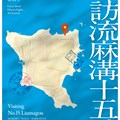
Visiting No. 15 Liumagou: Memory ‧ Place ‧ Narrative
Permanent exhibitionVisiting No. 15 Liumagou: Memory ‧ Place ‧ Narrative Sandy Hsiu-chih Lo “No. 15 Liumagou" was once the location of the common domicile of political victims detained on...

CRC 30th Anniversary Exhibition (with virtual exhibition link)
Permanent exhibitionCRC 30th Anniversary Exhibition The Convention on the Rights of the Child (abbreviated as the CRC) was promulgated on November 20, 1989. The Convention was incorporated into the domestic law of...

What?! Why Me?! (with virtual exhibition link)
Permanent exhibitionWhat?! Why Me?! “Freedom of Speech” is a part of basic human rights, but during the period of martial law in Taiwan, there were more than thousands of imprisonment cases due to speech, text, or...

If on the Edge, Draw a Coordinate: the 2020 Green Island Human Rights Art Festival (with virtual exhibition link)
Permanent exhibitionGreen Island Human Rights Art Festival 2020 In 2019, NHRM first tried to organize the "Green Island Human Rights Art Festival" using contemporary art as a medium. It was well received and was...

Come with Us, Please — A Journey of Articulating Injustice and Shaping Collective Memory (with virtual exhibition link)
Permanent exhibitionCome with Us, Please — A Journey of Articulating Injustice and Shaping Collective Memory CHEN Kuan-yu Born in Keelung, Taiwan in 1985, Chen is a visual artist and freelance director/ photographer....
Activities from this museum
We don't have anything to show you here.


